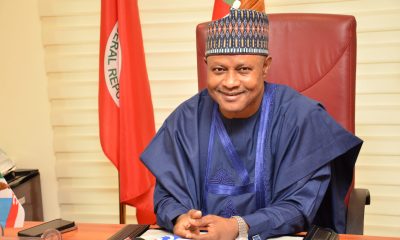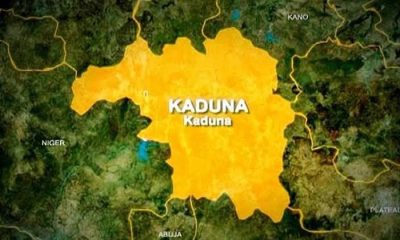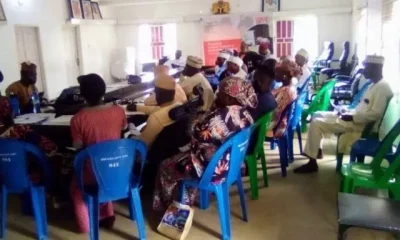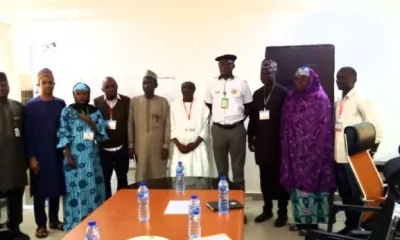Headline
KDSG promises robust engagement with citizens
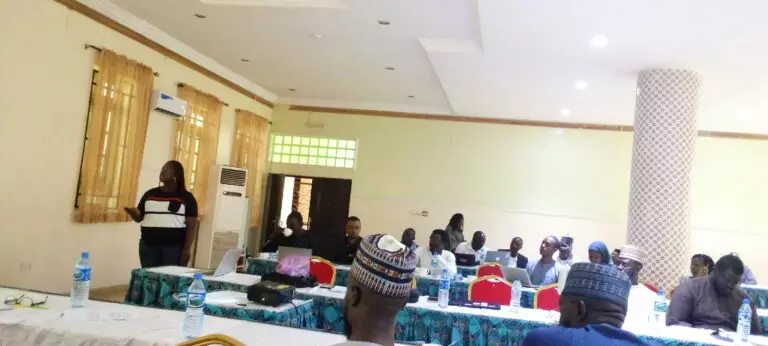
The Kaduna State Government has promised a robust engagement with the Civil Society Organisations (CSOs) in the state for the benefit of the citizens.
The Special Adviser to Gov. Ina Sani on NGOs, Sakina Garba, said this in Kaduna at a one day engagement to review the submission of citizens groups to transition committee and tracking its implementation.
Garba noted that because of the importance the governor attached to the citizens, he created the Office of the Special Adviser on NGOs at his office and that of his Deputy, to critically look into concerns of citizens in every sphere of his administration.
She therefore urged NGOs and CSOs in Kaduna to take advantage of the opportunity to build more synergy with the state government.
Similarly, her counterpart in the office of the Deputy Governor, Mr Zubairu Mukthar, said CSOs and NGOs were partners with the government, adding that they all had a common goal to achieve in making life of citizens better in all spheres.
He assured participants at the review meeting that it would be a new dawn for NGOs and CSOs in Kaduna State.
He also assured transparency and accountability as key words in their engagements.
Earlier, the State Lead of Partnership to Engage, Reform and Learn (PERL), Mr Abel Adejor, said electioneering period was over and it was now time for governance and holding those elected into public offices accountable.
He said prior to the elections, engagements were held with the Partnership for Issues-based Campaign in Nigeria (PICaN), where gubernatorial candidates were present and the citizens demand charter was presented to them.
“Now that we are going to look at government direction, we will look at areas in all sectors that require intervention.
“Through dialogue we will see how we can hold the government accountable,” he said.
Adejor, therefore, noted that the objectives of the review meeting were to reflect on the agenda-setting activities during the 2023 gubernatorial elections with focus on influence of citizens’ demand charter.
He said it was also to facilitate dialogue with strategic political appointees to generate strategies to support and track the implementation of the Sen. Uba Sani’s “Sustain blueprint” and jointly agree on next steps to strengthen partnership.
Also, Mr Yusuf Goje, representative of PICaN, disclosed that it was engagement and demand charter, developed through its programmes, that influenced some content of Gov. Uba Sani’s “Sustain Agenda”.
Presenting a paper titled “Agenda setting, journey so far”, Goje said in the health sector, PICaN submitted 14 needs – four reflected in the blueprint (Sustain Agenda) of Gov. Uba Sani.
He also said that on social protection, they submitted seven demands where five were included in the state government’s “Sustain agenda”.
According to Goje, the demands they presented in the charter for education were nine, out of which three were reflected in the ‘Agenda.
Speaking further, he predicted that the 2027 election in the state would feature more engagements with candidates.
“We believe by the next election, the engagement will be more robust, even the politicians are seeing that we are moving towards governance and the electorate are becoming more aware,” he said.
He, therefore, said in view of the successes recorded, what they would do next was to track the “sustain blueprint”.
“Our next step is tracking the ‘Sustain Blueprint’ and citizens demand influence. After four years, that is what we will use as his result sheet for the Kaduna State Government.
“We will continue to track because we have the state government development plan. The SUSTAIN blueprint has seven areas of focus which we will track.
“State Development Plan 2021 to 2025, which will be looking at impact of services if they are changing and improving lives of the people. We will use it as a baseline to see if the government is making progress or not,” Goje said.
The News Agency of Nigeria (NAN), reports that CSOs at the review meeting presented their submissions of the inclusivity of government’s Agenda, and the progress/challenges they encountered in the course of their activities.
The CSOs included the Kaduna Tax Justice Network, Kaduna Basic Education Accountability Mechanism (KADBEAM), Kaduna Local Government Accountability Mechanism (KAD-LGAM), and Kaduna Social Protection Accountability Coalition (KADSPAC).
Other participants cut across Ministries, Departments and Agencies of the state.
Headline
EFCC bars dollar transactions, orders embassies to charge in naira

The Economic and Financial Crimes Commission has barred foreign missions based in Nigeria from transacting in foreign currencies and mandated them to use Naira in their financial businesses.
The EFCC has also mandated Nigerian foreign missions domiciled abroad to accept Naira in their financial businesses.
The anti-graft agency said the move is to tackle the dollarisation of the Nigerian economy and the degradation of the naira
The Commission, therefore, asked the government to stop foreign missions in Nigeria from charging visa and other consular services in foreign denominations.
The EFCC gave the advisory in a letter to the Minister of Foreign Affairs, Amb. Yusuf Tuggar, for onward transmission to all foreign missions in the country.
In the letter, the EFCC said it issued the advisory because the practice of paying for consular services in dollars was in conflict with extant laws and financial regulations in Nigeria.
In a letter dated April 5, 2024, which was addressed to the Minister of Foreign Affairs, Ambassador Yusuf Tuggar, titled: “EFCC Advisory to Foreign Missions against Invoicing in US Dollar,” the EFCC Chairman, Ola Olukoyede expressed dismay over the invoicing of consular services in Nigeria by foreign missions in dollars.
The EFCC cited Section 20(1) of the Central Bank of Nigeria Act, 2007, which makes currencies issued by the apex bank the only legal tender in Nigeria.
The letter read, “I present to you the compliments of the Economic and Financial Crimes Commission, and wish to notify you about the commission’s observation, with dismay, regarding the unhealthy practice by some foreign missions to invoice consular services to Nigerians and other foreign nationals in the country in United States dollar ($).
“It states that ‘the currency notes issued by the Bank shall be the legal tender in Nigeria on their face value for the payment of any amount’.
“This presupposes that any transaction in currencies other than the naira anywhere in Nigeria contravenes the law and is, therefore, illegal.”
The commission further stated that the rejection of the naira for consular services in Nigeria by certain missions, along with non-compliance with foreign exchange regulations in determining service costs, is not just unlawful but also undermines the nation’s sovereignty embodied in its official currency.
The letter continues: “This trend can no longer be tolerated, especially in a volatile economic environment where the country’s macroeconomic policies are constantly under attack by all manner of state and non-state actors.
“In light of the above, you may wish to convey the commission’s displeasure to all missions in Nigeria and restate Nigeria’s desire for their operations not to conflict with extant laws and regulations in the country.”
Diplomatic sources said yesterday, May 10, that some embassies were wondering whether the EFCC’s advisory represented the position of the Federal Government.
Headline
Prince Harry visits sick Nigerian soldiers in Kaduna

Prince Harry and his team visited the 44 Nigerian Army Reference Hospital in Kaduna to interact with wounded soldiers who are receiving treatment.
The Duke of Sussex is in Nigeria with his wife to champion the Invictus Games, which Harry founded to aid the rehabilitation of wounded and sick servicemembers and veterans.
Nigeria joined the Invictus Community of Nations in 2022 becoming the first African country to join.
Prince Harry’s visit to Kaduna came 68 years after his late grandmother Queen Elizabeth II visited the state during the time of the late Premier of Northern Region Sir Ahmadu Bello.




-

 Headline5 days ago
Headline5 days agoPrince Harry visits sick Nigerian soldiers in Kaduna
-

 Entertainment5 days ago
Entertainment5 days agoAMVCA Cultural Day: BBNaija’s Neo, Venita win Best Dressed Male, Female
-

 Metro5 days ago
Metro5 days agoEx-Sports Minister laments after hospital neglected him for hours over N80000 deposit
-

 Headline5 days ago
Headline5 days agoEFCC bars dollar transactions, orders embassies to charge in naira



